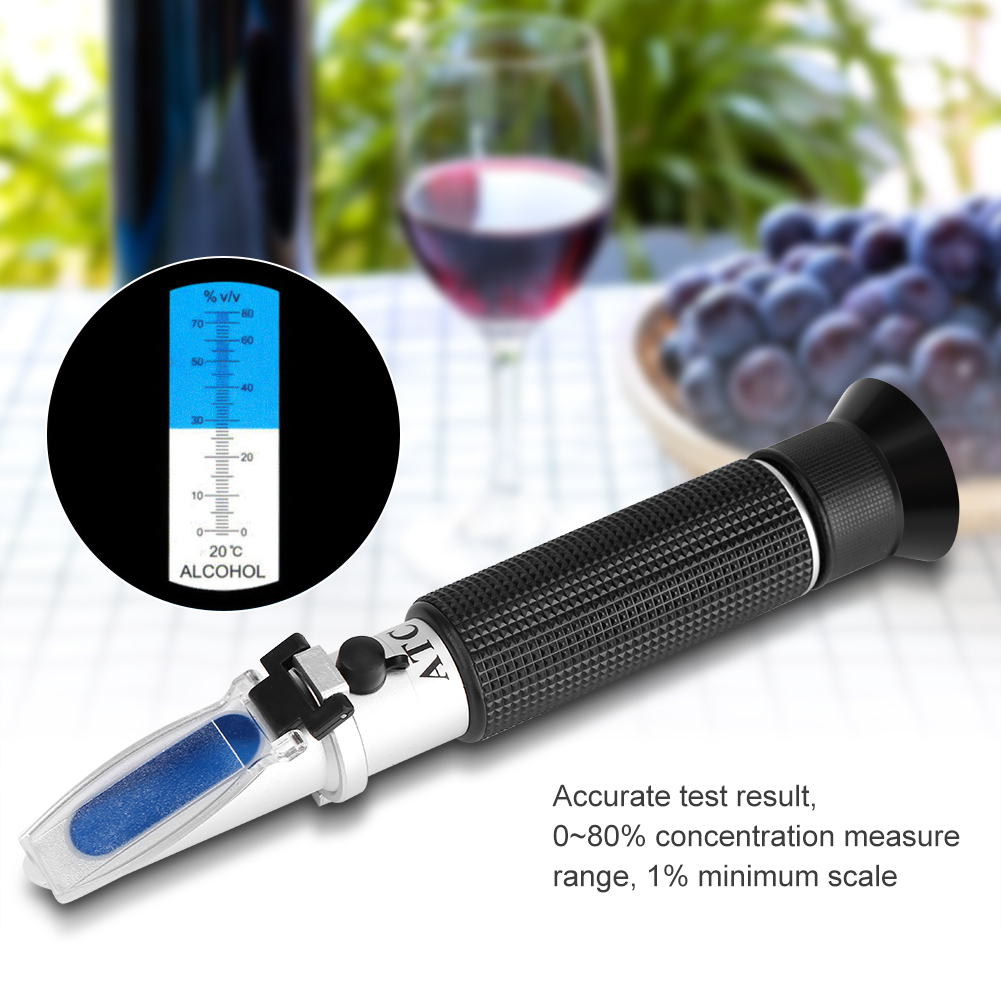You are using an out of date browser. It may not display this or other websites correctly.
You should upgrade or use an alternative browser.
You should upgrade or use an alternative browser.
Hydrometer vs Refractometer?
- Thread starter Dorothyp
- Start date

Help Support Winemaking Talk - Winemaking Forum:
This site may earn a commission from merchant affiliate
links, including eBay, Amazon, and others.
BernardSmith
Senior Member
Here's the thing: refractometers use only a tiny drop of liquid to measure the density of a liquid by measuring how light is refracted through that liquid. But in fact the liquid they measure is water and that makes this tool an excellent choice when you want to measure the sugar content of grapes or another fruit you want to ferment. The problem is that once the liquid you are measuring is not water but includes a mixture of water and alcohol, the refractive index of that solution is not the same as water and so to be able to use a refractometer after you have pitched yeast means that you have to use a fairly complex formula that compensates for the amount of alcohol in solution. It's certainly doable but is a chore.
An hydrometer uses a fair amount of liquid when you use it but it measures density directly so you can use this whether you are measuring fruit juice, water or wine. I typically use a refractometer to measure the sugar content of fruit and an hydrometer when I want to know how my fermentation is progressing. Both are useful but if I could only have one I would choose the hydrometer.
An hydrometer uses a fair amount of liquid when you use it but it measures density directly so you can use this whether you are measuring fruit juice, water or wine. I typically use a refractometer to measure the sugar content of fruit and an hydrometer when I want to know how my fermentation is progressing. Both are useful but if I could only have one I would choose the hydrometer.
- Joined
- Aug 5, 2011
- Messages
- 6,097
- Reaction score
- 10,790
They ate wonderful instruments for in the field or before fermentation starts. Just takes a drop or three and you have an idea if the sugar content. However, alcohol changes the refraction index, so add soon add fermentation starts they read the wrong value. There are charts and spreadsheets correct for that, but a hydrometer works really well and no correction required. Although there can be a temperature correction, it is generally small enough to ignore.
* Really good for small samples, if we have a carboy of juice that isn’t an issue though.
* There are small hygrometers that take less sample.
Do we focus too much on numbers? In the old days, (last year) I would go out to the grapes and taste them, ,,, or watch how bad the wasps are getting ,,,, to make a pick decision.
* There are small hygrometers that take less sample.
Do we focus too much on numbers? In the old days, (last year) I would go out to the grapes and taste them, ,,, or watch how bad the wasps are getting ,,,, to make a pick decision.
the refractometer even with the correction necessary. just to use a drop to monitor fermentation reduces all kind of risk in getting sample and contaminating the must. used frequently you can determine ,through experience, fairly accurately the points you fermentation has reached. if needed the hydrometer can measure you final points. refractometer all the way for me.
I use a refractometer with a Brix scale on it, not alcohol , and it is VERY handy to have when you need to check the Brix level of your grapes. I grow my own grapes, so it helps me judge just when to harvest.
Checking alcohol levels during fermentation is best done with a hydrometer, but never a refractometer. So I find both meters necessary. If you never have to check grape ripeness/sugar content , then you would probably do fine with just a hydrometer.
Checking alcohol levels during fermentation is best done with a hydrometer, but never a refractometer. So I find both meters necessary. If you never have to check grape ripeness/sugar content , then you would probably do fine with just a hydrometer.
I use both instruments. The refractometer in the early phase as I balance and manage my preferment and the hydrometer after pitching the yeast through to the end of fermentation. I wouldn’t be without my refractometer. Less fuss, less mess and lessens the potential for contamination.
I'll use both as well in the beginning. although the hydrometer for me is more accurate, but if I'm just making sure the fermentation is not stuck I'll use the refractometer or the hydrometer.
Similar threads
- Replies
- 6
- Views
- 290
- Replies
- 7
- Views
- 1K
- Replies
- 6
- Views
- 650




